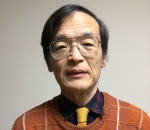以下は大雑把な英語版です。
知ってる内容を英語ルートで理解。洋画で字幕を読んで英語を聞くように。
日本語の内容はこちらから
↓ ↓ ↓
https://worldlife.jp/archives/12174
Have you ever noticed something missing in English announcements on JR trains? Well, it’s the words “Thank you.” They hardly ever say it at the end.
You might think, “Is this a big deal?” But let’s think about it. Saying “Thank you” can make a big difference.
When you say “Thank you,” you’re saying thanks to the people who are listening, for letting you speak and interrupting their quiet time.
So, when there’s no “Thank you” at the end of an announcement in Japan, it might mean that we don’t realize we’re disturbing people’s quiet time, and maybe we don’t care.
But why do people in Western countries respect silence more than we do in Japan?
One reason is because they think silence is special. It’s a bit like they believe that God is in silence, as Max Picard, my favorite writer, implies in his “Die Welt des Schweigens”. So, if silence is like a special place, it’s no wonder they respect it, even when it’s just quiet between people.
We don’t have to copy everything from the West, but we can learn something from them – how to be more respectful to other people’s quiet time.
Lately, on a bullet train to Osaka, I heard a JR staff member say “Thank you” at the end of an announcement. It was a nice surprise.
Wouldn’t it be great if we heard “Thank you” more often on Japanese bullet trains? It’s a simple way to show we care about others and their quiet moments.
私立学校に英語教師として勤務中、40代半ばに差し掛かったころ、荒れたクラスを立て直す策として、生徒に公言して英検1級に挑戦することを思い立つ。同様の挑戦を繰り返し、退職までに英検一級(検定連合会長賞)、TOEIC満点、国連英検SA級、フランス語一級、スペイン語一級(文科大臣賞)、ドイツ語一級、放送大学大学院修士号などの成果を得る。
アメリカで生徒への対応法を学ぶ為に研修(地銀の助成金)。最新の心理学に触れた。4都県での全発表、勤務校での教員への研修を英語で行う。現在も特別選抜クラスの授業を全て英語で行っている。「どうやって単語を覚えればいいですか?」という良くある質問に答える為、印欧祖語からの派生に基づく「生徒には見せたくない語源英単語集」を執筆中。完成間近。常日頃洋書の読破で様々な思考にふれているが、そうして得た発想の一つを生かして書いた論文がコロナ対策論文として最近入賞。賞品の牛肉に舌鼓をうっている。元英検面接委員


